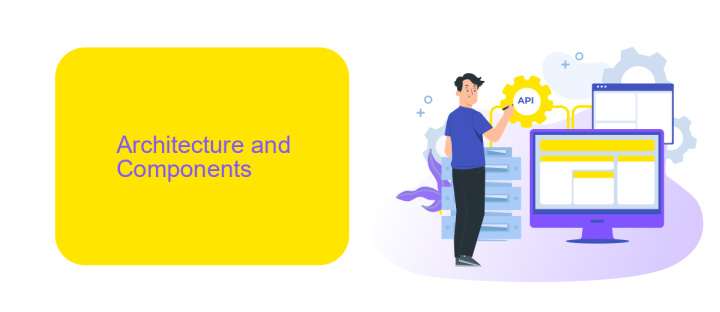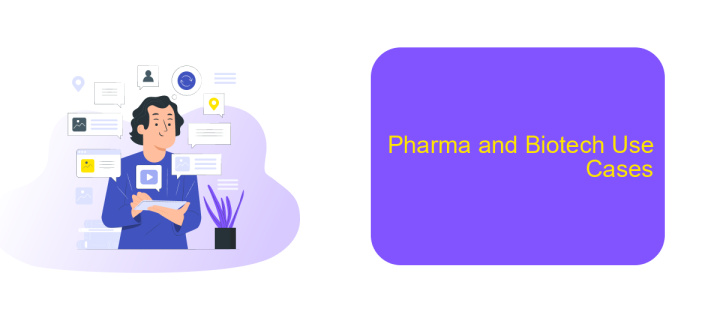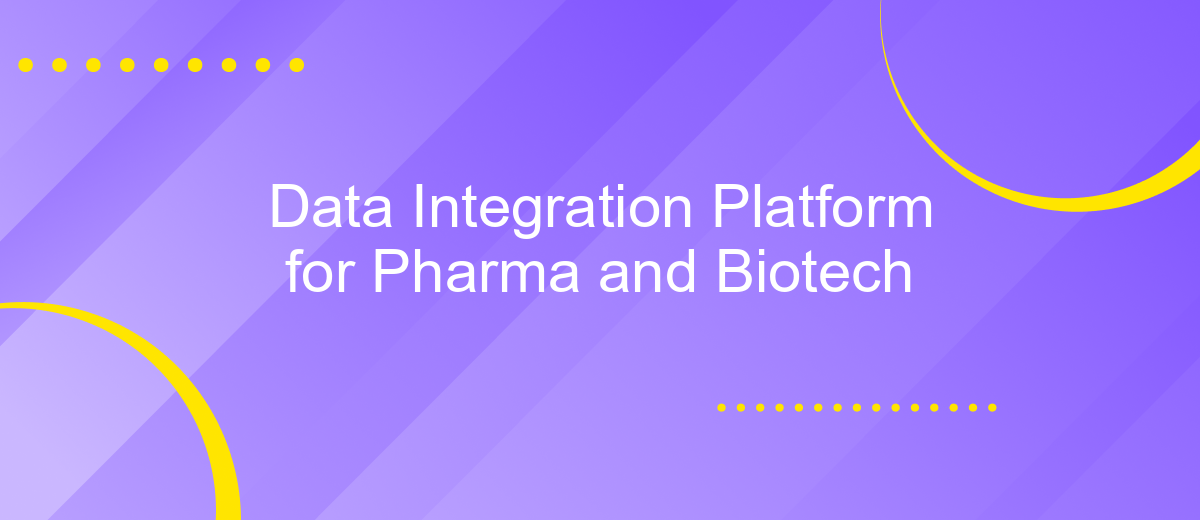Data Integration Platform for Pharma and Biotech
In the rapidly evolving fields of pharmaceuticals and biotechnology, efficient data management is crucial. A robust Data Integration Platform can streamline the aggregation, analysis, and sharing of critical data, enhancing research and development processes. This article explores the key features, benefits, and implementation strategies of such platforms, highlighting their transformative impact on the pharma and biotech industries.
Introduction
In the rapidly evolving fields of pharma and biotech, the need for efficient data integration platforms has never been more critical. These platforms enable seamless data exchange between disparate systems, ensuring that researchers and professionals can access accurate and up-to-date information. This facilitates better decision-making, accelerates drug development, and ultimately leads to improved patient outcomes.
- Streamlined data management
- Enhanced collaboration across departments
- Improved regulatory compliance
- Faster time-to-market for new drugs
One notable solution is ApiX-Drive, a service that simplifies the integration process by offering a user-friendly interface and robust automation capabilities. By leveraging such tools, pharma and biotech companies can efficiently connect various data sources, ranging from laboratory information management systems (LIMS) to clinical trial databases. This not only saves time but also reduces the risk of errors, ensuring that critical data is always at the fingertips of those who need it most.
Architecture and Components

The architecture of a Data Integration Platform for Pharma and Biotech is designed to streamline the complex processes of data collection, transformation, and analysis. The platform typically consists of several key components, including data ingestion modules, ETL (Extract, Transform, Load) tools, data storage solutions, and analytics engines. These components work together to ensure seamless data flow from various sources such as laboratory information management systems (LIMS), electronic health records (EHR), and clinical trial databases. The platform's architecture is scalable and flexible to accommodate the growing volume and variety of data in the industry.
One crucial component of the platform is the integration layer, which facilitates communication between disparate systems. Services like ApiX-Drive can be employed to automate and manage these integrations efficiently. ApiX-Drive supports a wide range of APIs and offers a user-friendly interface for setting up data workflows without the need for extensive coding. This ensures that data from different sources can be harmonized and made available for further analysis quickly and reliably. Additionally, robust security measures and compliance with industry standards such as GDPR and HIPAA are integral to the platform's architecture to protect sensitive data.
Data Integration Challenges and Solutions

Data integration in the pharma and biotech industries presents several challenges, including data silos, diverse data formats, and regulatory compliance. These challenges can hinder the seamless flow of information, impacting decision-making and operational efficiency.
- Data Silos: Isolated data systems prevent comprehensive data analysis.
- Diverse Data Formats: Integrating data from various sources with different formats is complex.
- Regulatory Compliance: Ensuring data integration adheres to stringent industry regulations.
Solutions to these challenges involve adopting robust data integration platforms like ApiX-Drive, which facilitates seamless data flow between disparate systems. ApiX-Drive simplifies the integration process by offering pre-built connectors and automation tools, ensuring data consistency and compliance. By leveraging such platforms, pharma and biotech companies can enhance data accessibility, streamline operations, and make informed decisions.
Pharma and Biotech Use Cases

Pharma and biotech industries are increasingly relying on data integration platforms to streamline their operations and enhance research outcomes. These platforms enable seamless data exchange between various systems, improving efficiency and accuracy in critical processes. By integrating diverse data sources, companies can make more informed decisions and accelerate drug development timelines.
One of the key benefits of data integration in these sectors is the ability to unify clinical trial data, patient records, and research findings. This holistic view facilitates better analysis and insights, ultimately leading to more effective treatments and therapies. Moreover, regulatory compliance is simplified through automated data synchronization and reporting.
- Integration of laboratory information management systems (LIMS) with electronic health records (EHR)
- Automated data transfer between research databases and analytics platforms
- Real-time monitoring and reporting of clinical trial progress
- Consolidation of supply chain data for improved inventory management
Services like ApiX-Drive play a crucial role in these integrations by offering customizable, no-code solutions for connecting various applications and databases. This ensures that even non-technical staff can set up and manage integrations, thereby reducing the dependency on IT departments and speeding up the implementation process.
- Automate the work of an online store or landing
- Empower through integration
- Don't spend money on programmers and integrators
- Save time by automating routine tasks
Benefits and Value Proposition
The Data Integration Platform for Pharma and Biotech offers a multitude of benefits, streamlining data management processes and enhancing operational efficiency. By integrating various data sources into a unified platform, it enables seamless data flow and real-time analytics, which are crucial for making informed decisions. This integration not only reduces manual data entry errors but also ensures data consistency and accuracy across all departments. Furthermore, the platform supports compliance with industry regulations, safeguarding sensitive information and maintaining data integrity.
One of the key value propositions of this platform is its ability to simplify the integration process through services like ApiX-Drive. ApiX-Drive facilitates the connection of different data sources and applications without the need for extensive coding, making it accessible even to non-technical users. This ease of use accelerates the deployment of integrations, allowing companies to quickly adapt to changing business needs. Additionally, the platform's scalability ensures that it can grow alongside the organization, providing long-term value and a competitive edge in the fast-paced pharma and biotech industries.
FAQ
What is a Data Integration Platform for Pharma and Biotech?
Why is data integration important in the pharmaceutical and biotechnology industries?
What types of data can be integrated using a Data Integration Platform?
How can automation help in data integration for pharma and biotech?
What are the key features to look for in a Data Integration Platform for Pharma and Biotech?
Strive to take your business to the next level, achieve your goals faster and more efficiently? Apix-Drive is your reliable assistant for these tasks. An online service and application connector will help you automate key business processes and get rid of the routine. You and your employees will free up time for important core tasks. Try Apix-Drive features for free to see the effectiveness of the online connector for yourself.


